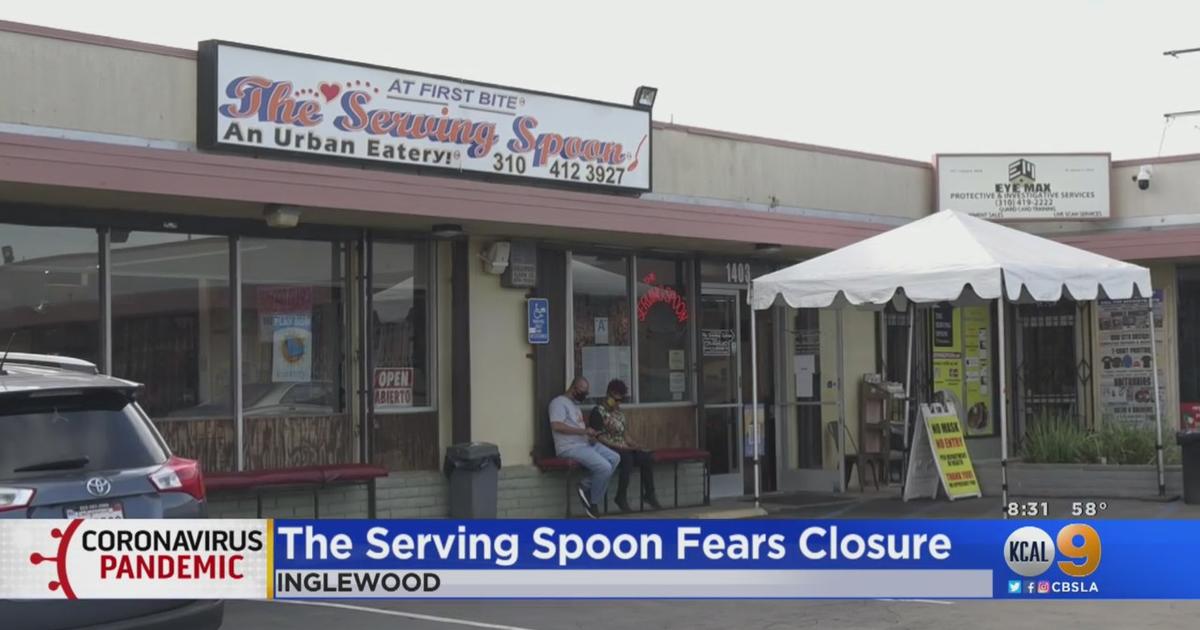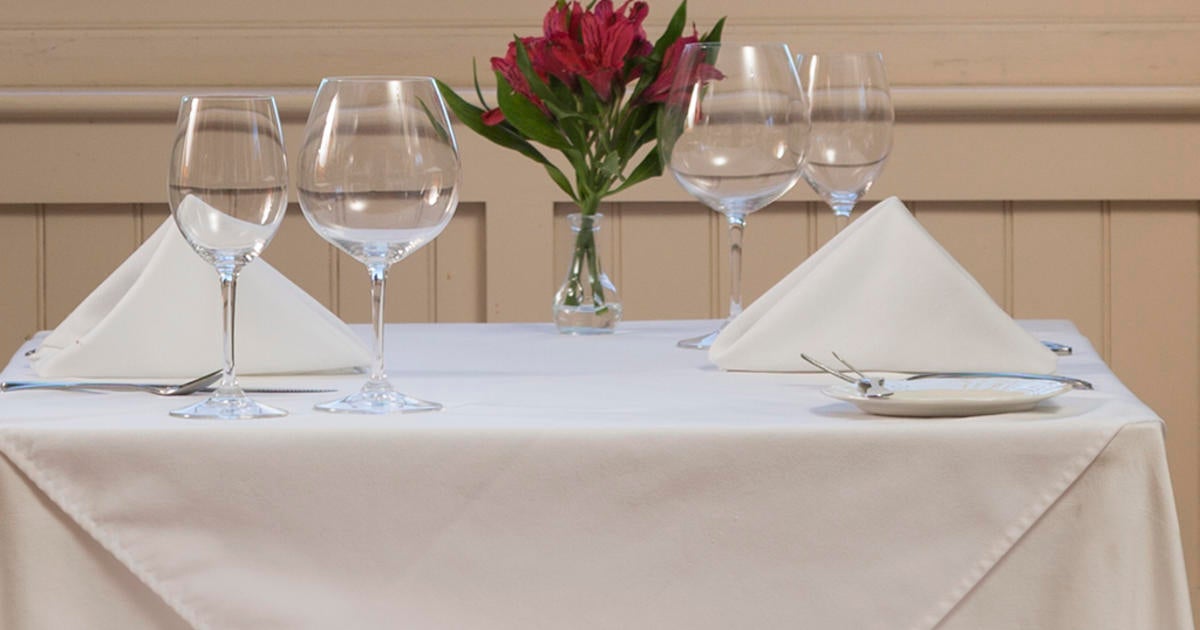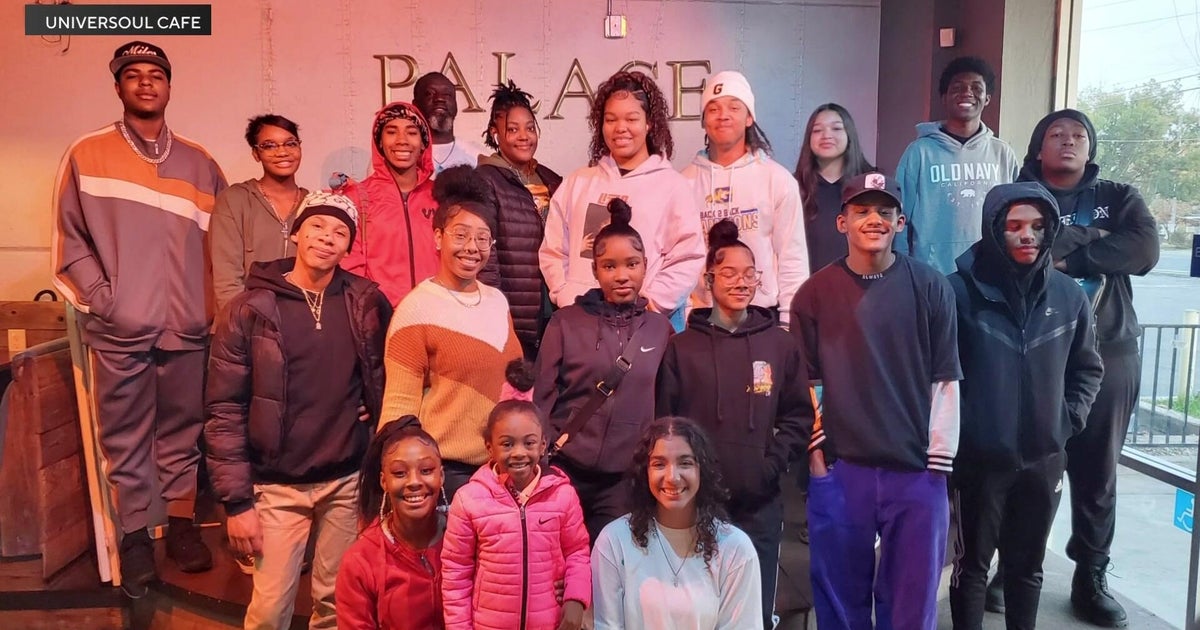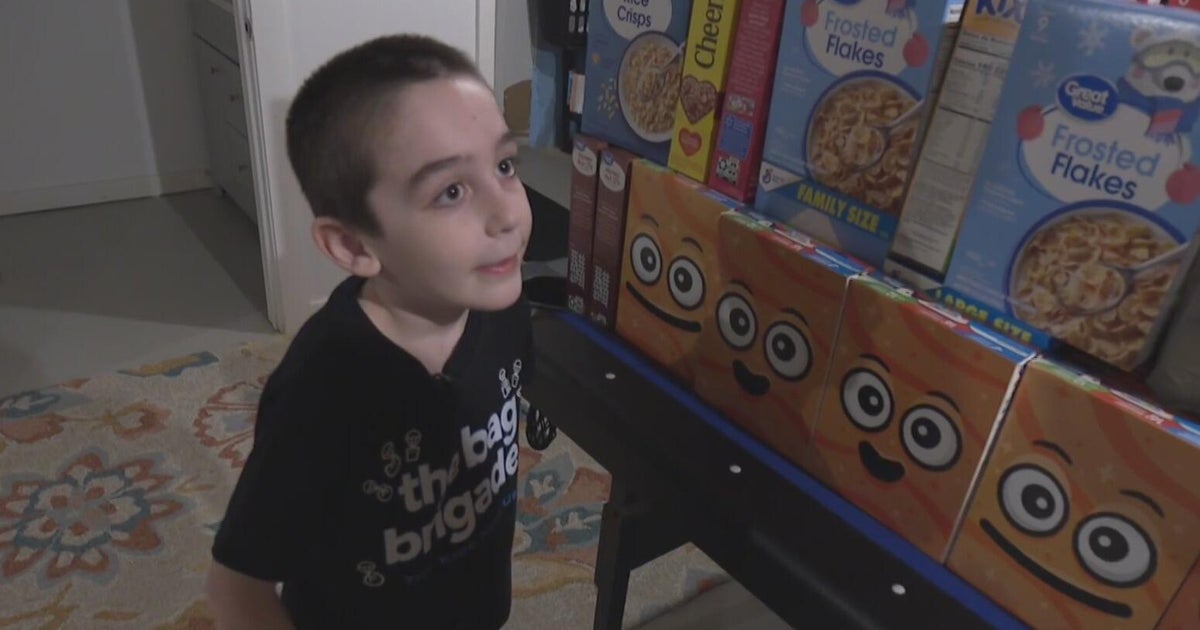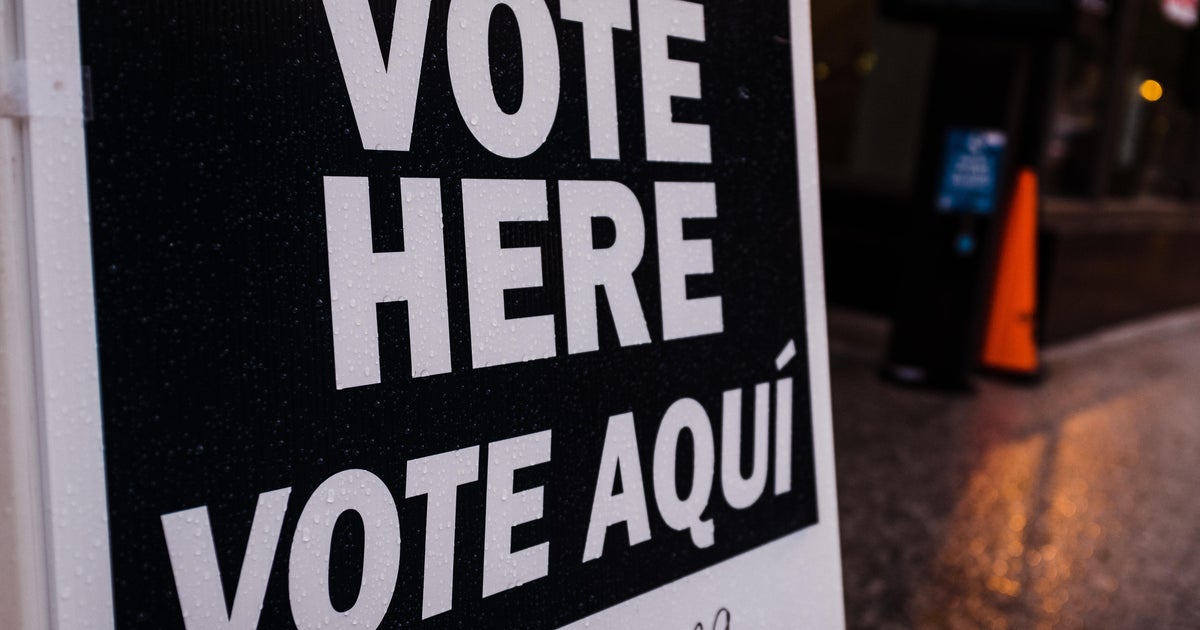Curiocity: A Chef's Profile Of Jack Riebel, Part 2
The Twin Cities are blessed when it comes to talent in the kitchen. The culinary minds at the helm of our favorite restaurants receive critical acclaim and top honors from food enthusiasts and reviewers, alike. But who are the people behind the chef's coat? Our Chef's Profile aims to find out.
It's taken Butcher and the Boar's Jack Riebel 30 years of cooking, but he finally feels like he's arrived.
As we discussed in Part 1 of our chef chat, Riebel climbed the ranks, beginning as a smoothie maker and breakfast cook at age 16 to become a highly successful executive chef and owner -- and yes, a James Beard Award nominee.
But it's the humble beginnings the chef had that helps keep things in perspective.
After spending a few years as a breakfast line cook, Chef Jack wanted a change. At 20 or so, he became a salad chef and helped prepare the happy hour bar for the Embassy Suites Hotel.
"I basically did, like, your Taco Tuesdays," he said, with a laugh.
He met other chefs at the hotel who were graduates of the cooking program at St. Paul Technical College and decided to enroll.
He was accepted and attended for a year but never graduated. Instead, he left the program and put his efforts behind opening the new Radisson Hotel in downtown Minneapolis, after one of his instructors suggested he go ask for a job.
"The funny thing was you're in school and it's cool but I was learning so much every day working in this brand new hotel and it was awesome," Riebel said. "I probably should've paid more attention than I did."
After the Radisson, it was another opening -- or re-opening -- of the Nicollet Island Inn, then a quick jump to Goodfellas, where he was basically hired on the spot. He spent about a decade as Goodfellas' executive sous chef, before heading out to La Belle Vie and eventually, to become executive chef at the Dakota Jazz Club.
Now, with his own restaurant having celebrated its first year -- and a successful one at that -- Chef Jack said he couldn't be prouder.
Butcher and Boar received plenty of accolades since its first day, being hailed as one of the best restaurants in the Twin Cities and earning nationwide recognition. But that's certainly not why Chef Jack executed his vision the way he did.
Our chef chat continues ...
-------
When you were developing Butcher and the Boar, did you ever think these kinds of awards (Restaurant of the Year, Best Chef Midwest, etc.) would result?
Well, you know, I think if your motivation is always to win awards, you're never going to make it. I think the underpinning for a lot of restaurant entrepreneurs or owners is that you're opening up a restaurant but really, you're opening up a business. And it's a tough business. It's a nickel-and-dime business. You have to be prepared to work really hard and model what you're doing. To achieve awards means you have to be operating at a very good level, but it also means you have to be very consistent. I think if I say anything to my guys every day, it's 'consistent, consistent, consistent.' You have to want to cook the same thing 40 times every day, you know, for six months until you find something new to cook.
Now, we're in a modern era where there's tasting menu format only and cool boutique restaurants and awesome, creative guys like Doug Flicker that change their menu once a week but that's a very small percentage of the cooking world. I mean, you think about the guy down the street at Bruegger's Bagels that's making that same bagel every day -- but it's not great if he doesn't make it the same way. I think it's hard for people to understand. It's a little bit misleading in the time and place that we live because it's so much of it is glamorized. It's got this really white collar, celebrity appeal but in reality, it's a very blue collar, grinding job. It's not glamorous to sit in a hot line, getting beat up for five hours of service for $12 an hour. And that's the high end, that's Minnesota -- you go to other cities and you're not making that kind of money.
When you were initially putting this concept together, is this what you were hoping it would be?
When I was approached to do this job, I was at the Dakota and I was asked to help consult on it. And consulting meant that it was really going to be just a hot dog stand -- I use the word stand -- a hot dog stand with like tap beers and bourbon. They wanted it very bare bones. I met with my two operating partners over a month in August in 2011 and after a month, they asked me to become a partner. They wanted me to kind of drive the concept in a little different direction and I think they saw what I was capable of, and they knew what I could do. We've been compared to some other restaurants -- and I don't really think anything's original, ever -- but what we did is make an effort to be really unique. From the design to the food. And is it familiar food? To some respect, but also from the menu design on down, it's very different. And that was the thing that we really wanted to achieve -- was to be different in this market.
You know, there's already house of steak, house of charcuterie, houses of meat, we wanted to be all those things but we wanted to have our own voice. I think anytime you can (knocks on wood) be lucky as we are to open up with great success and still maintain that voice and that level of creativity, I think it's super awesome.
When you were first leaving the Dakota and approached to do this project, was that scary at all for you? Or were you ready?
I think I'd run my course at Dakota. I mean, Dakota was a great job and I met a lot of cool people there -- we brought a lot of them over here in the last year, obviously I'm a huge music fan and Dakota is in the top clubs in America, bar none. I've been to a lot of them. Is it the best club? Out of any given night, whatever performance could make it the best club. Seeing Prince at the Dakota two months ago made it the best club of all time, right? So that's relative. Inherently, there's challenges whenever you're at a show club but for me, my time was up there, it was time to go. Life is making opportunity. When the opportunity came up, I just took advantage of it. Was it the right thing? How do you ever know if it's the right thing? But if you don't take a chance, then you're never going to get there.
So let's focus on your life outside the restaurant. When you're at home, what do you like to cook for yourself or for friends and family?
Well the one thing we've tried to do recently, and it's kind of funny, it's like an English or Irish thing but we're trying to have proper Sunday suppers. So we're doing things on Sunday like a roast, or a pot of stew or chili, something then that also translates to food for the week. We're really trying, my wife and I, along with some friends, we're trying to make a concerted effort to really take Sundays to have that downtime and be creative and have fun. Last Sunday it was a mustard and honey-glazed salmon and I made this great oxtail-braised vegetables and it was really good. We're just trying to take those moments to cook. Cooking is my vocation but it's also my avocation. I really love to cook and at the end of the day, when you become an owner and a bigger piece of the puzzle, you have less time for that front-line cooking, which I miss. At the end of the day, I'm just a line cook that got lucky.
What's your biggest guilty pleasure food?
It's hard for me. I'm not a food snob, or at least I like to think I'm not, but I don't eat fast food, I don't eat in bars, I don't eat hamburgers, I really don't eat anything in a bun. I just don't. Even the sausages here, we didn't put them in a bun, we put them on a plate with a fork and knife. One part of the idea, like back to the design portion of the restaurant, I think we realized that anytime you put something in a bun, immediately, it's just for you. It's your sandwich, it's your hot dog and we really wanted this to be a communal dining experience, where people bought stuff and shared it. I thought as soon as you use a fork and a knife, it's way more transferable, than putting it in a bun. Maybe that's just me but I like a fork and a knife. Do I eat with my hands? Plenty. I eat my salad with my fingers. But yeah, I'm not a chicken wing guy. And it's not that I'm opposed to it, but if I'm going to eat like that, I'm generally doing that at home. I can roast a chicken, I'm a chef, right?
So guilty pleasure would be, if it's a junk food thing, I love the Chicago popcorn mix, with the cheese and the caramel, like at Candyland. If I buy a can, I'll eat the whole damn thing. So I don't buy it often. Peanut M&M's are on my list. As a chef, I'm really a texture guy. So like, M&M's don't do it for me but put a peanut in there and to me, it's a whole new thing. Same thing with the popcorn -- it's cheesy, it's sweet, it's crunchy, it's got everything all in one. As far as cheater food goes, I don't have a microwave but I have a toaster oven, so anything I can put on a corn tortilla and toast at like, midnight, is generally what I'm eating with a beer at 12 o'clock. Frozen pizza, I do eat frozen pizza. It's terrible.
Any particular brand of pizza?
Jack's. They're five for $10. And I like the crust when you cook it really hot and you can put whatever you want on it -- you gotta jazz it up.
Is there an ingredient that you would prefer never to work with?
I don't like raw broccoli. And durian fruit I can swallow, it's just not my favorite. It's interesting. Also one of my pet peeves in cooking -- I hate scallions that are cut more than a day in advance. They just smell gassy. And I feel like durian fruit reminds me of that same gassy smell of scallions. I know it's sulfur or whatever, but yeah, it's just something about it. It's a savory fruit and I think that's what throws me off. I want to bite into it and I want it to be like jack fruit, but in reality it tastes like ... raw scallion. So yeah, something happens to me there.
On the flip side, is there an ingredient you find yourself constantly drawn to?
I'm very seasonal. People's bodies crave it. When you're in Minnesota and that first cold weather hits, it's like man, I need something hot and sticky and thick. I grew up with wild rice soup that you could stick a spoon in and it'd stick straight up. But you don't want to eat that in March. Right now, I think I'm digging tropical fruit. I love pineapple, I love mangos, papaya. I'm looking forward to berries and ramps and some other cool things. Minnesota morel mushrooms, that's what everybody wants.
When you're out of both kitchens, what's your favorite pastime?
I recently got back into bike riding, which I really enjoy. For many years when I was a chef, I played basketball but once I started at La Belle Vie, I quit playing. But I played for 25 years. I love jazz music. When I took the job at the Dakota, I was actually a member. I used to drive from La Belle Vie on my off nights and try to catch a show. I'm really into dogs. I have two but I'm really into training dogs.
If you had to choose a "Last Meal," what would it be?
Sweet breads. Love sweet breads. Fried.
Where are some of your favorite places to dine?
Well, the greatest meal I've ever had in my entire life was at L'Astrance in Paris. The best meal I've ever had in America was at Eleven Madison Park (New York), I did lunch with my wife and that was amazing. Twin Cities best meals? All the chefs are going to get mad. Doug Flicker made a tasting menu for me and Tim (McKee) and Bill (Summerville) at Auriga. I think that was the best tasting menu I've ever had in Minnesota, with the exception of Steven Brown and Peter Rocher at Levain. I had a meal at Levain that was actually better than anything I had in New York, on that particular trip. I love Steven Brown, I think Doug Flicker is a genius. I love Sameh Wadi, I know he gets a lot of love but I think he should get more. I really love brunch at Haute Dish. Sorry Landon, I like brunch better than dinner. But he cooks it. I think that's why I like it, he puts his soul into it. It's hard because I don't get out much. One of my favorite restaurants that I continually go to is probably Meritage because it's the only place where I can get oysters and champagne. I like Chinese food at Hong Kong Noodle. I'm kind of finicky. I like weird things. I'm quirky.
You and other chefs you mentioned have done some friendly competitions in the past. Would you ever consider going on reality cooking shows, like Chopped or Top Chef?
It's funny that you should ask that because I have a video audition into Top Chef right now. They called me about a month ago and asked me to submit an application. I said I would. I don't know if I'll do it. I love Chopped -- it's my favorite show. It appeals to everything I like about the competitive side of cooking. Cooking is always a competition. There's a lot of ego involved in what we do but you just have to cage it, it has to be healthy. If you were to talk to any great chef, they all play to win. It's a very competitive industry that we're in. It's even a competitive environment in the kitchen working with other chefs. So I really enjoy competition.
For your next venture, you'll be helping with the a restaurant for the former Joe's Garage spot in Loring Park. What can you tell us about that?
Well, everyone knows Joe's Garage is closed in Loring Park and we will be consulting that restaurant and doing that. I will be a contracted and consulting chef for a period of time. So along with Joe, who owns it obviously, and our two management partners here, we will be consulting on the project. They came to me and asked if I would be interested and I said yes. It's a little precarious in the sense that we're only a year old here and we still have a lot to do, places to go but you never know what the next opportunity will bring. It's an opportunity to be involved in something that's new and exciting.
Any clues on the menu or what the vision will be?
Well I know some stuff but I'm not supposed to say. We want to create another environment where people feel relaxed, it's casual, it's fun. I don't think it needs to be a destination restaurant, I'll say. It needs to be a place where you call me and say, 'Hey Jack, meet me for a beer and some snacks, we're going here. By the way we've got a 150-seat rooftop patio that's awesome.' I think that being said, it will definitely be a more casual approach than Butcher and the Boar. ... Joe's is almost like an institution. I don't think you want to go too far from what it's always been. But it's also been 25 years. It's time for some new paint. That's the approach I want to take to it. I don't want to lose the idea of what Joe's is, I just want to bring it up to more of a current standard.
When you look back on your career, what do you hope to be known for, in the culinary world?
That's a tough question. I just want to be known as the guy that made people great food. At the end of the day, it's always about cooking. We, chefs, -- speaking for myself, maybe others -- tend to get lost in other things that aren't as important. It's harder in my role here than it's ever been as a chef being a partner because you're involved in a lot of things. Like today it's 4 p.m. and in my world, in my life, I'd rather be cooking in the kitchen. At the end of the day, I just want to be a great cook. If I can have some success in doing things along the way, those are all perks to me. I don't think your motivation will ever be that you're going to get up in the morning and start cooking because you want to be a TV celebrity, the next Top Chef or the next James Beard guy. I think you really get rewarded if you work hard and just do the best you can.
Read Part 1 of our chef chat with Jack Riebel. For more information on Butcher and the Boar, click here.
